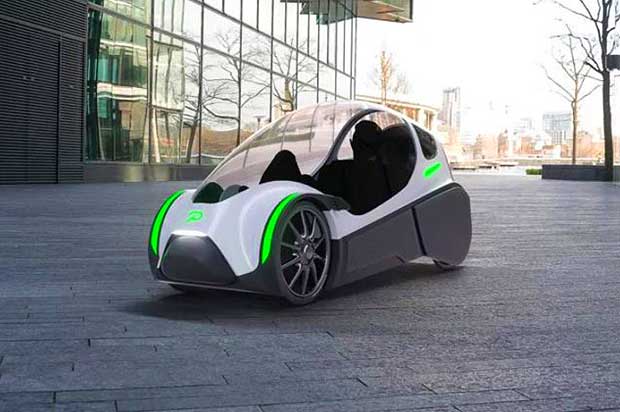
The way in which we get around the world that we live in has continually changed over the years. From people taking trips across the world via horseback to the massive jet engines we fly around continents in today, transport is an ever-changing industry. As one of the most important industries around, the problem that many people have with driving is the emissions that it creates. Not only is it potentially dangerous for the environment, but it’s not good for our own health either.
That’s why when companies come up with new and exciting car ideas, we should be excited. One example of this is the Norwegian group, Elpedal, who have created a ‘podbike’ – an electrically assisted car, or velomobile, that is human-powered, bringing together the power of cycling into the art of driving a car.
The aim is to get people essentially ‘driving’ a car using the method of riding a bike. The aim is to get people out of unhealthy driving positions and instead making use of their bodies more to get them around the place in a comfortable, practical form of cycling.
A 4-wheel cycling experience
With four wheels and two hub motors, this interesting little velomobile will power itself up by using the thrust of your peddling. Each push of the pedal will generate electricity to the car, giving it extra power so that you can move at reliable speeds. Inside the vehicle, you would have space for one adult and one child, with the chance to travel as far as 37 miles on a single battery charge. The velomobile is made using an aluminium frame for long-term weather protection, as well as high-end aerodynamics to allow easier movement and control.
Not only will this be a more active form of driving, but it will also be a practical, reliable, safe, and easy to maintain vehicle. It will be highly usable and it will be able to provide those who find electric cars to be an unsuitable compromise. It’s going to produce the least emissions from transport possible, especially when compared to the modern car.
The hope is that the first test unit will be ready in late 2019, with a release across Europe aimed at for 2020. With a price of around $6,000, this could be a vehicle that becomes an affordable alternative to buying a car in an era where we all need to do more to help keep the environment healthy.
Citation